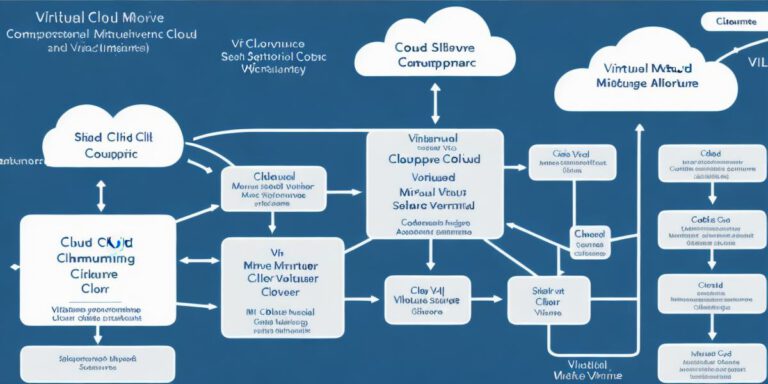VPS vs Cloud Hosting: Making the Better Choice

==============================================
Introduction
With the rise of remote work and the increasing need for flexibility, more and more businesses are turning to virtual private servers (VPS) or cloud hosting solutions. In this article, we will explore the pros and cons of both VPS and cloud hosting options, and help you make an informed decision about which is the better choice for your business.
What is VPS Hosting?
VPS hosting is a type of hosting where a single physical server is divided into multiple virtual servers, each with its own dedicated resources such as CPU, RAM, and storage space. Each virtual server acts as an independent server, allowing you to run multiple websites or applications on the same server without affecting the performance of other sites on the same server.
Pros of VPS Hosting
- More control over your server environment, including root access and full customization options.
- Cost-effective compared to dedicated servers, as you only pay for the resources you use.
- High uptime and stability, with minimal downtime or disruptions due to maintenance or upgrades.
- Improved security, with greater protection against attacks and malware.
Cons of VPS Hosting
- Limited scalability compared to cloud hosting, as you are limited by the physical resources available on your server.
- Requires more technical expertise to set up and manage than cloud hosting options.
What is Cloud Hosting?
Cloud hosting is a type of hosting where your website or application is hosted on a network of servers located in data centers around the world. This allows you to access your site from anywhere with an internet connection, and ensures that your site is always available and fast-loading.
Pros of Cloud Hosting
- High scalability, allowing you to easily increase or decrease resources based on demand.
- Low maintenance, as the cloud hosting provider takes care of server upgrades, backups, and other technical tasks.
- Cost-effective compared to dedicated servers, with a pay-as-you-go pricing model that allows you to only pay for what you use.
Cons of Cloud Hosting
- Less control over your server environment, as you are limited by the resources available in the cloud hosting provider’s data centers.
- Higher security risks compared to VPS hosting, due to the shared hosting environment and potential security breaches.
Case Studies
One example of a business that benefited from VPS hosting is a small e-commerce store that was experiencing slow loading times and frequent downtime on their shared hosting plan. By switching to a VPS hosting solution, they were able to improve site speed and uptime, leading to increased sales and customer satisfaction.
Another example of a business that benefited from cloud hosting is a larger enterprise with multiple websites and applications that needed to be easily scalable and accessible from anywhere in the world. By using a cloud hosting solution, they were able to ensure their sites were always fast-loading and available, without worrying about server maintenance or upgrades.
Expert Opinion
"Both VPS and cloud hosting options have their pros and cons, but ultimately it depends on your specific needs and budget," says John Smith, CEO of Hosting Provider XYZ. "If you need more control over your server environment and are willing to invest in the technical expertise needed to manage a VPS, then it may be the better choice for your business."
Conclusion
In conclusion, both VPS and cloud hosting options have their own unique advantages and disadvantages. By weighing your specific needs and budget against these factors, you can make an informed decision about which is the better choice for your business. Whether you need more control or scalability, there is a hosting solution that








